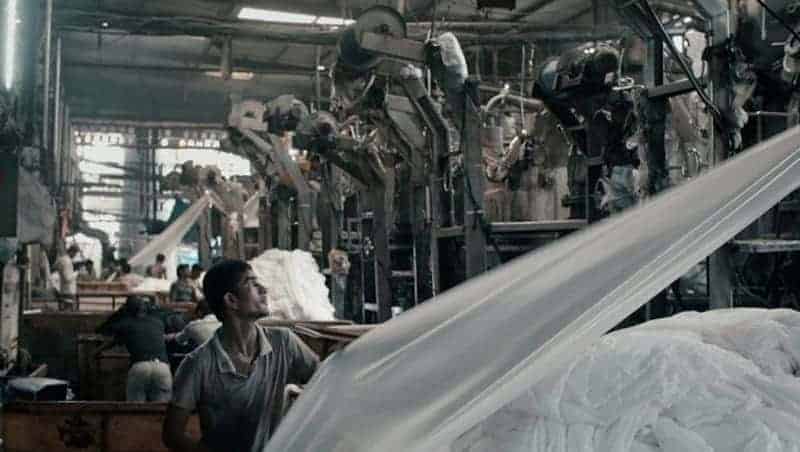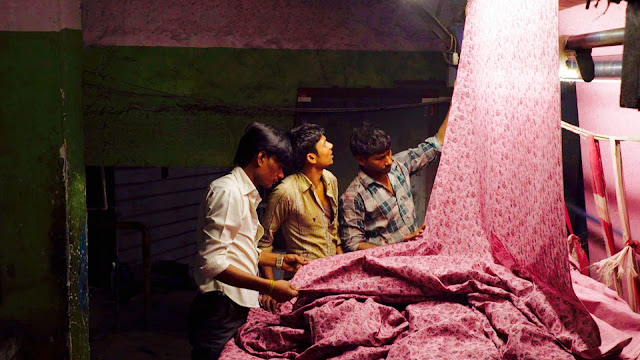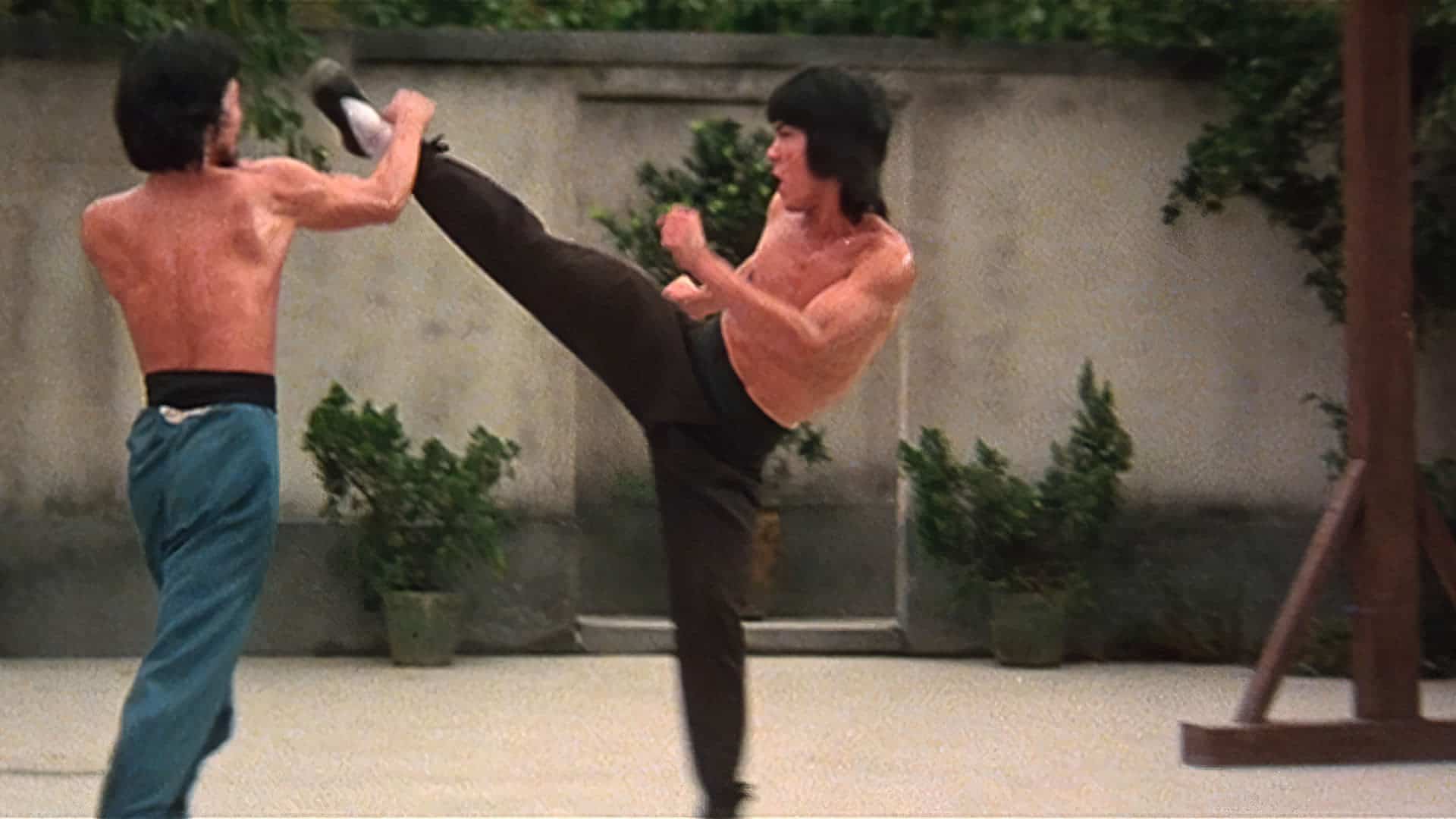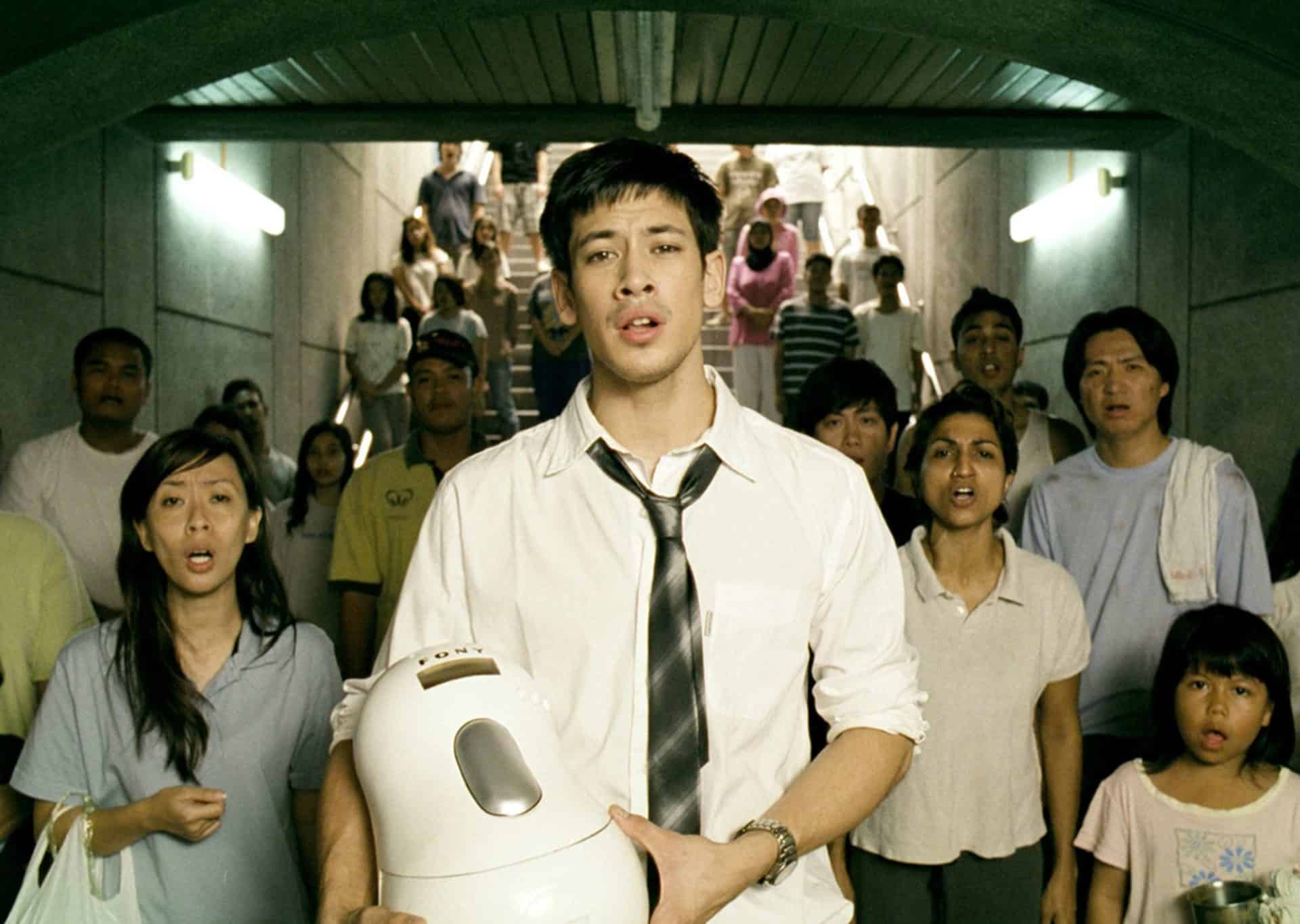With the advent of the industrial age, machines have played a central role in developing new industries, even new ideas. Many looked forward to people working lesser hours, expecting the machines to do most of the work. What many did not anticipate is that people would become moving parts in the machines. That they would be toiling away for long hours without breaks, to make sure the engine of modern civilization is ticking away without any hiccups. Even in the twenty-first century, there are still many places where workers toil away for little pay and little to no breaks. “Machines”, a documentary released in 2016 and directed by Rahul Jain offers us a window into this world.
Buy This Title
The documentary opens with workers toiling away in a mill. The state of the mill is dilapidated, with the workers looking no better. Some are moving bundles of clothes while others are mixing chemicals to make the various dyes for the clothes. There is a buzz of activity. The most important part of a documentary are the characters we encounter in it. After showing some parts of the factory, we slowly get introduced to the perspectives of different workers. One talks about how his role requires both strength and intelligence; another describes how he has come from 1600 km away to work here, earning just enough to get by. We are introduced to people talking about unions, and why it is not going to be successful. The documentary reaches its climax with the owner of the factory. He talks about how these workers will spend money on alcohol and other “rotten” things instead of sending this money to their families.
“Machines” is not as an easy documentary to watch. To many who have never laid their eyes on factory working conditions in less developed countries, it can be hard to stomach. Just like the sweltering conditions in the factory, the sense of helplessness and pain hangs on the audience. Most of us are, to a certain extent, aware of the desperate conditions of workers in sweatshops. Yet, when we encounter their personal stories, it is hard to remain indifferent.
When I watched the documentary for the first time, I was not impressed with the almost ten minutes of no dialogue the film begins with. In the middle as well, there were a few shots of the factory which did not add anything to the documentary. These could have been made shorter and the impact would have been the same.
Most of the workers are migrant labourers who left their villages looking for a job. While they acknowledge the fact that their working conditions are horrendous, they are grateful they even have a job. The documentary may not aim for it but there is a strong undercurrent of socialism in it, through the depiction of the exploitation of workers, especially migrant ones, for little pay and through their inability to form unions. According to one worker, union leaders are killed by the factory owners to keep everyone in check.
The director does a good job in showing different kinds of characters one can find amongst the working class. One wants unions to come in, another wants bonus and eight hour shifts, while another recognises that he is there of his own free will and hence cannot complain, and then there is a kid who says that he does not like working there, but wants to keep at it so that he will be a skilled worker when he grows up.
As pointed out earlier, the documentary reaches its climax with the interview of the owner. It is difficult to keep a straight face to see the unapologetic exploitation being done. His justification of underpaying the workers left me seething. The documentary delivers its final blow with the interview of a worker who asks what is the purpose of this documentary. Ministers come and listen to them, filmmakers come and listen to them, but to what end? Does anyone care? The most defining scene of “Machines” is a boy, tired, yawning with eyes closing from sleepiness, manning the machine. As someone who has had to pull long hours, to do so in oppressive heat with no protection and little pay, it must be soul crushing. There are many other points of importance, but I do not want to cheapen it by talking about it. So get your hands on the documentary!
From a technical perspective, the camera work gets the job done. The dull and dilapidated nature of the setting required the use of dull colours. As mentioned earlier, the beginning of the documentary showing scenes of the factory is too long. Some of the other shots as well do not add anything to it.
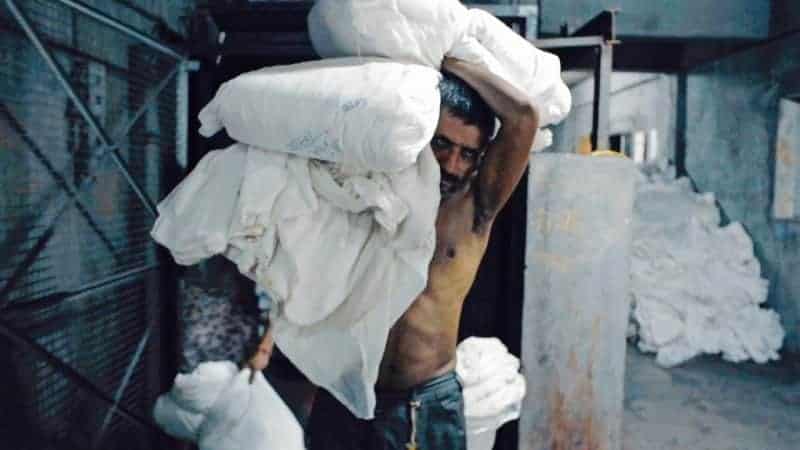
“Machines” is a slap to the face. Our obsession with cheaper everything is fuelling a race to the bottom. More cuts in wages, cutting corners on worker safety, longer hours. What this documentary made me realise is that things are not really that cheap. Someone else is paying the price. We should all keep that in mind the next time we go out for shopping.


